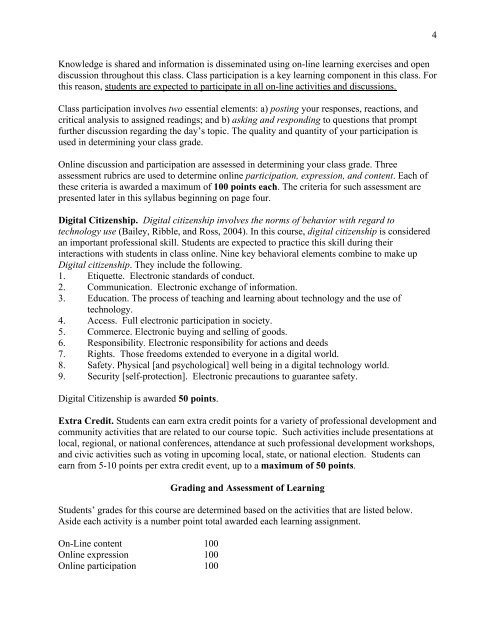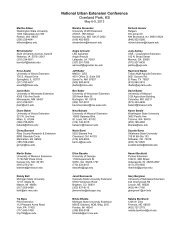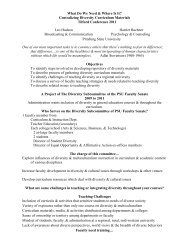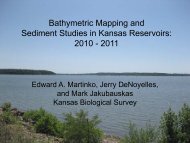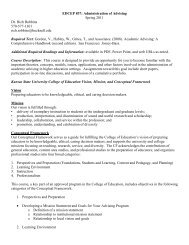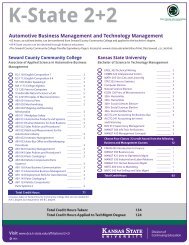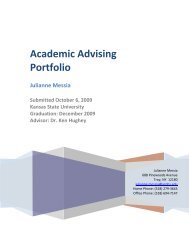EDCEP 838 - Kansas State University
EDCEP 838 - Kansas State University
EDCEP 838 - Kansas State University
Create successful ePaper yourself
Turn your PDF publications into a flip-book with our unique Google optimized e-Paper software.
4<br />
Knowledge is shared and information is disseminated using on-line learning exercises and open<br />
discussion throughout this class. Class participation is a key learning component in this class. For<br />
this reason, students are expected to participate in all on-line activities and discussions.<br />
Class participation involves two essential elements: a) posting your responses, reactions, and<br />
critical analysis to assigned readings; and b) asking and responding to questions that prompt<br />
further discussion regarding the day’s topic. The quality and quantity of your participation is<br />
used in determining your class grade.<br />
Online discussion and participation are assessed in determining your class grade. Three<br />
assessment rubrics are used to determine online participation, expression, and content. Each of<br />
these criteria is awarded a maximum of 100 points each. The criteria for such assessment are<br />
presented later in this syllabus beginning on page four.<br />
Digital Citizenship. Digital citizenship involves the norms of behavior with regard to<br />
technology use (Bailey, Ribble, and Ross, 2004). In this course, digital citizenship is considered<br />
an important professional skill. Students are expected to practice this skill during their<br />
interactions with students in class online. Nine key behavioral elements combine to make up<br />
Digital citizenship. They include the following.<br />
1. Etiquette. Electronic standards of conduct.<br />
2. Communication. Electronic exchange of information.<br />
3. Education. The process of teaching and learning about technology and the use of<br />
technology.<br />
4. Access. Full electronic participation in society.<br />
5. Commerce. Electronic buying and selling of goods.<br />
6. Responsibility. Electronic responsibility for actions and deeds<br />
7. Rights. Those freedoms extended to everyone in a digital world.<br />
8. Safety. Physical [and psychological] well being in a digital technology world.<br />
9. Security [self-protection]. Electronic precautions to guarantee safety.<br />
Digital Citizenship is awarded 50 points.<br />
Extra Credit. Students can earn extra credit points for a variety of professional development and<br />
community activities that are related to our course topic. Such activities include presentations at<br />
local, regional, or national conferences, attendance at such professional development workshops,<br />
and civic activities such as voting in upcoming local, state, or national election. Students can<br />
earn from 5-10 points per extra credit event, up to a maximum of 50 points.<br />
Grading and Assessment of Learning<br />
Students’ grades for this course are determined based on the activities that are listed below.<br />
Aside each activity is a number point total awarded each learning assignment.<br />
On-Line content 100<br />
Online expression 100<br />
Online participation 100


